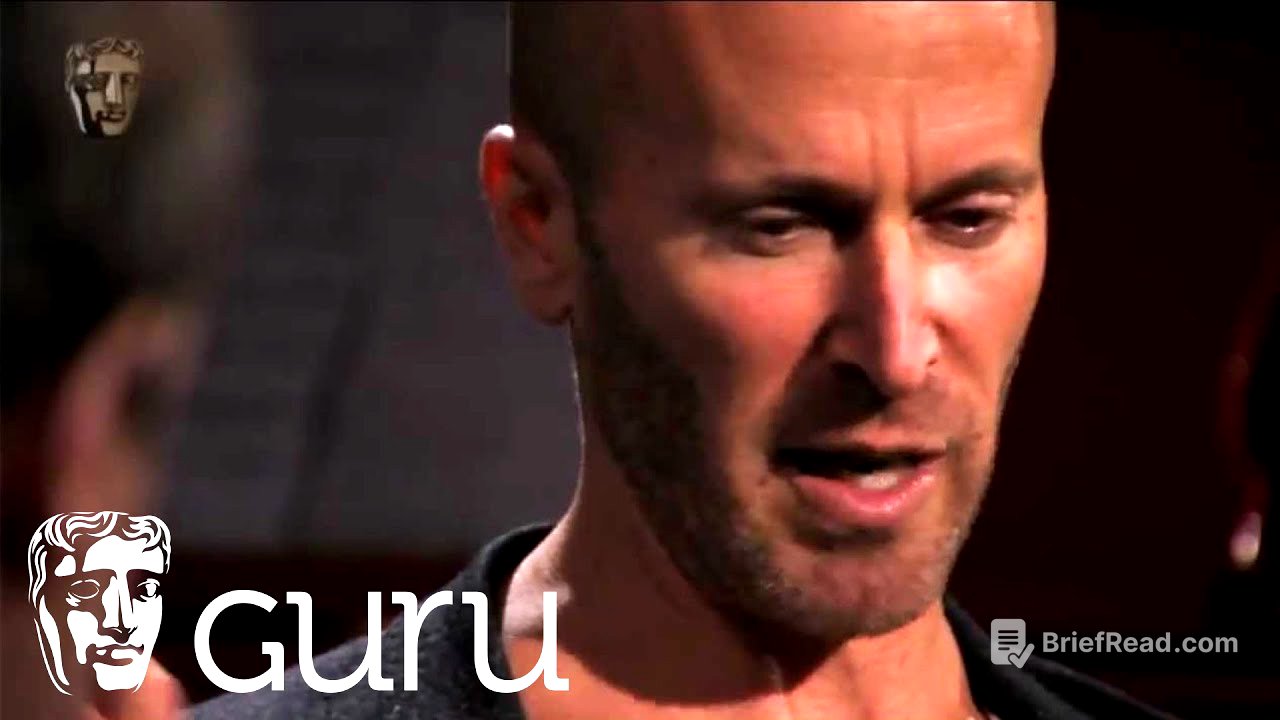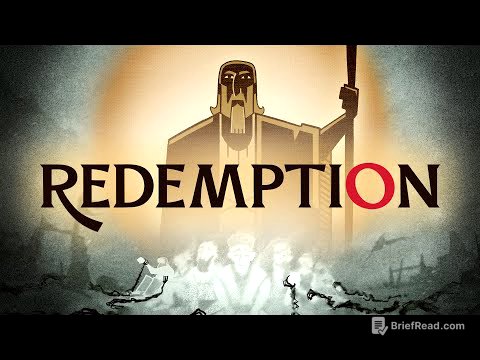TLDR;
Murray Gold, a renowned UK television music writer, discusses his career, the art of composing for television, and his work on iconic shows like Doctor Who. He emphasizes the importance of originality, emotional connection, and constant practice in music composition. Gold shares insights into his creative process, collaboration with writers and orchestrators, and the unique challenges of scoring for television.
- Importance of originality and emotional connection in music composition.
- The role of constant practice and collaboration in developing a successful career.
- Trusting one's inner emotional response to create impactful music.
Early Influences and Career Beginnings [0:06]
Murray Gold is a well-known UK writer of television music, a genre that demands both economy and instant originality. His early career included dramas like Queer as Folk, Vanity Fair, and Shameless, which featured offbeat scores. In his youth, Gold experimented with recording music using multiple tape recorders, eventually acquiring a four-track recorder. He notes that learning to write for theater, with its limited instrumentation and specific functional requirements, was a crucial step in his development as a composer.
The Essence of Theater Music [2:30]
Theater music requires precision, capturing the essence of the play in short musical cues. A brief piece of music before the curtain rises must convey the setting, theme, and tone of the play, whether it's a comedy or a drama. Gold likens sitting at a piano to facing a blank page, full of possibilities, and emphasizes the importance of how one plays the piano in shaping the composition.
Early Career and Breakthroughs [3:55]
Gold recounts his early experiences, including working with documentary director Mark Mundan, who initially rejected him but later offered him the opportunity to score the costume drama Vanity Fair. Despite initial skepticism, Gold's unconventional score, reminiscent of Kurt Vile and Weimar Republic styles, was a hit. This success led to a collaboration with Russell T Davies on Queer as Folk, where Gold's romantic and offbeat scores complemented the Northern working-class drama.
Creative Process and Collaboration [8:50]
Gold describes his intensive creative process, often creating up to 40 versions of a piece before settling on the final one. He emphasizes the importance of seeing the material firsthand and trusting his initial emotional response. Gold recalls a challenging experience with Frank Oz on Death at a Funeral, where he was asked to create a happy ending cue without having seen the film.
Scoring Shameless and Connecting with the Material [10:49]
Gold discusses his work on Shameless, highlighting its immediate impact and unique style. He emphasizes the importance of connecting with the philosophical content of a show and collaborating with bright, passionate individuals. Growing up in a middle-class family, Gold found himself working with Northern working-class writers, whose stories were foreign yet fascinating to him.
Joining Doctor Who [13:09]
Gold recounts how he joined Doctor Who after Christopher Eccleston, who was starring in a play Gold had written, was cast as the Doctor. Initially dismissive of the show, Gold received an email from Russell T Davies offering him the music composition role. He created an electronic demo, but the producers requested strings, leading him to quickly learn how to use string samples in his compositions.
Reimagining the Doctor Who Theme [16:37]
Gold discusses the challenge of reimagining the iconic Doctor Who theme. While acknowledging the original's brilliance and its sense of loneliness and fear, the new series was warmer and more affectionate. The producers wanted a theme that reflected this warmth, leading Gold to create a new arrangement that captured the show's essence of love and adventure. He emphasizes treating the characters sincerely and transparently, aligning their hopes and expectations with his own.
Orchestration and the Christmas Special [20:10]
Gold praises his orchestrator, Ben Foster, who translates his MIDI files into full orchestral scores. He recalls writing the music for the Doctor Who Christmas special, "The Doctor, the Widow and the Wardrobe," in just 10 days. Gold also recounts the last-minute addition of a song to the Christmas carol episode, which was to be sung by Katherine Jenkins, requiring him to compose it under immense pressure.
Impact and Emotional Gauge [24:10]
Gold reflects on the immense popularity of the Doctor Who Christmas specials and the emotional connection viewers have with the music. He feels like an "old guard" on the show, with his emotional responses often serving as a gauge for the quality and impact of the music. Gold notes that associating a theme with a beloved character enhances the emotional drive and resonance of the music.
Advice for Aspiring Composers [25:58]
Gold advises aspiring composers to constantly create music, meet people in the industry, and be persistent. He stresses the importance of developing unique voice rather than imitating others, such as Hans Zimmer. Gold encourages young composers to express themselves authentically and trust their inner emotional responses when working on a project. He believes that the ability to evoke emotion with music is a valuable skill.
Trusting Your Inner Mechanism [27:48]
Gold emphasizes the importance of trusting one's inner emotional mechanism for understanding a scene and anticipating audience responses. He believes that the ability to make someone cry with a simple piano chord is about placement and emotional connection. Gold concludes by quoting Richard Bellis, stating that writing film music is not just about writing scores, but about where the music goes and how it impacts the scene.









